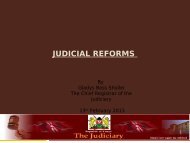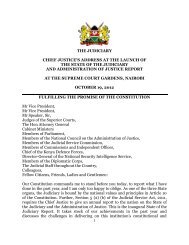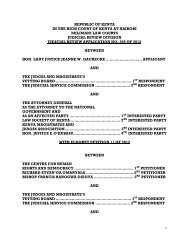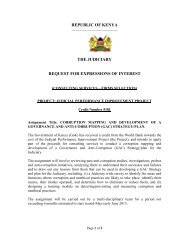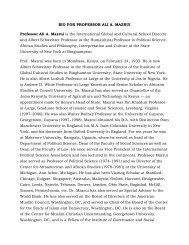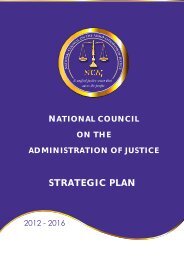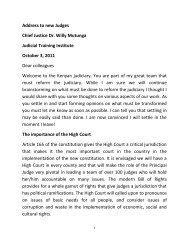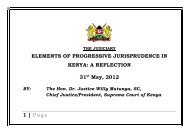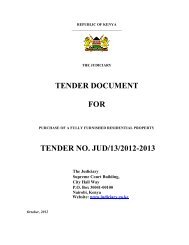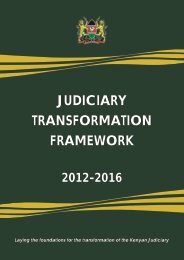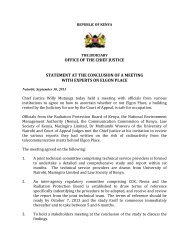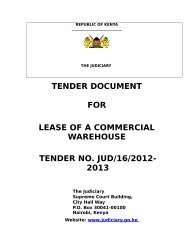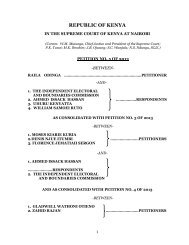REPUBLIC OF KENYA - The Judiciary
REPUBLIC OF KENYA - The Judiciary
REPUBLIC OF KENYA - The Judiciary
You also want an ePaper? Increase the reach of your titles
YUMPU automatically turns print PDFs into web optimized ePapers that Google loves.
[19] Counsel invoked the legal-redress maxim, ubi jus ibi remedium:<br />
“there is no right without a remedy.” He urged that the petitioners<br />
should not be left without a remedy, submitting that the petitioners<br />
had a right to fair hearing before an impartial and independent Court:<br />
and this, at the time of the incident, was true under Section 77 of the<br />
1969 Constitution (now repealed) – just as it is today, under Article 50<br />
of the Constitution of 2010. This right, counsel urged, was grossly<br />
violated at the hearing and determination before the Court of Appeal –<br />
yet the petitioners had no remedy by way of an overturning judicial<br />
order. Counsel urged that the Constitution proffered Section 14 of the<br />
Supreme Court Act, 2011 as the basis of redress which, however, the<br />
Macharia decision had denied. Counsel submitted that the scope of a<br />
party’s rights under Article 25 of the Constitution cannot be limited<br />
despite any other provisions, including that relating to the Supreme<br />
Court’s jurisdiction under Article 163(3). Learned counsel urged that,<br />
by the Macharia decision, the Court had overlooked the terms of<br />
Article 22(1) of the Constitution which thus read:<br />
“Every person has the right to institute court proceedings<br />
claiming that a right or fundamental freedom in the Bill of<br />
11



